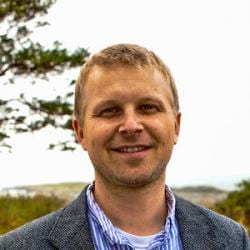This presentation is guided by the question: How do we understand and how ought we understand God’s purposes being realised in history, society and nature alongside what is clearly becoming more apparent today in the way human technological agency is impacting history, society and nature? Simply put, how does an understanding of divine providence relate to the increasing public belief that technology drives history and drives it for the better? The presentation will first provide a brief genealogy of how technology has become implicated in how we understand the shape, direction or purpose of history, society and nature. Part of that genealogy will involve explaining how the doctrine of providence gets transformed and secularised into the ‘myth of progress’ in the eighteenth and nineteenth centuries, and continues to operate today. The ‘myth of progress’ as an ultimate belief of liberal western society depends today on technological production and the goods technology makes possible in those societies. The presentation then turns briefly to how one ought to understand normatively this technological agency in light of divine providence. Should the impact of technology on society, history and nature been seen as a moment within what has been called Heilsgeschichte (holy history or salvation history)? The presentation argues that it really should not even if it might change our perception of particular categories or doctrines in Christianity. Instead of elevating technology to such a sacred place (as many religious and non-religious transhumanists do) it would be better to understand how God might work through creaturely technological forces as a subset of secular history which God enacts as part of His divine plan.













